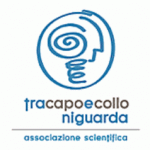L ’ human being is able to sense its position in space by integrating information from dell ’ organ ’ balance which may (in ’ inner ear), from view, by ’ hearing, by feel and perception of the position of your body. All information is processed and processed by the central nervous system.
A disease that affects any of these steps may cause instability and Vertigo.
And’ first crucial to distinguish dizziness affecting the central nervous system (neurological diseases) dizziness of peripheral origin, ENT competence.
They are classified into 4 main categories:
-benign positional paroxysmal Vertigo or cupulolitiasi: Pathology caused by the detachment of the Otoliths (concretions of calcium salts normally contained in a gelatinous substance in ’ inner ear) that engage the semicircular canals which causes of anomalous perceptions that cause dizziness. Feature dizzying crisis really intense but short-lived (10-20 seconds) triggered by the movements of the head. May occur after an injury or, more frequently, full welfare without an apparent cause. Tend to resolve spontaneously after a few weeks but it's pretty debilitating. A ’ accurate diagnosis can allow the ’ performance of specific maneuvers that can fix it or significantly speed up healing. After the maneuvers is common the feeling of instability (“walking on pillows”) for 1-2 weeks.
-acute vestibular deficit (vestibular neuronitis or labyrinthitis improperly told): caused by a sudden reduction or cessation of ’ functionality as one of two organs of ’ balance. The disease appears to be due to viruses or problems of the vessels that supply l ’ inner ear. And’ characterized by a ’ important spinning sensation, very violent, that occurs suddenly or after a brief period of feeling “ear full” that lasts for a few days. And’ accompanied by important nausea, vomiting and very often patients are not able to stand. The acute phase resolves spontaneously after 5-6 days but also instability persists for a long period. Medical therapy allows you to speed healing and reduce symptoms, you often need hospitalization.
-Meniere's syndrome: pathology that causes l ’ Association of Vertigo, hearing loss and tinnitus. Early on the 3 symptoms may not be present at the same time, in fact in most cases the disease starts exclusively with vertiginous symptoms to which only later associated with hearing loss and tinnitus l ’. By the time the dizzying crisis tend to shrink while hearing problems are accentuated. Persons suffering from Meniere's syndrome present crisis of Vertigo lasting several hours, quite often associated with debilitating ’ aggravation of auditory symptoms.
-migraine Vertigo: is a more nuanced form of Vertigo, sometimes described as instability, that can be seen between the symptoms that precede a migraine attack (aura)









